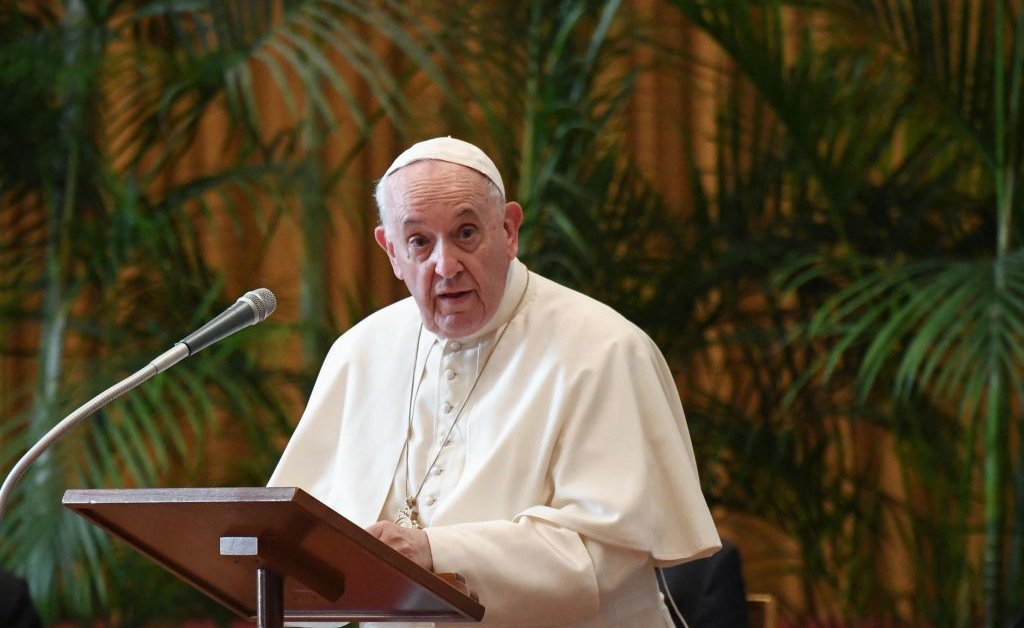Francis' Impact: A Green Papal Legacy
Pope Francis, since his election in 2013, has significantly shifted the Catholic Church's stance on environmental issues, leaving an undeniable green legacy. His pronouncements and actions have resonated globally, influencing both religious and secular spheres towards greater environmental stewardship. This article delves into the depth of his impact, exploring his key contributions and analyzing their broader implications.
Laudato Si': The Cornerstone of Francis' Green Agenda
The publication of Laudato Si', his 2015 encyclical on the environment, stands as a pivotal moment. More than just a papal document, it's a comprehensive treatise on the interconnectedness of social justice, environmental degradation, and economic inequality. Laudato Si' directly addresses climate change, biodiversity loss, and unsustainable consumption, framing them as moral and ethical issues demanding urgent action.
Key Themes in Laudato Si':
- Integral Ecology: This central concept highlights the interconnectedness of all creation, emphasizing that environmental degradation affects the poor and vulnerable disproportionately. Francis argues for a holistic approach, addressing social and environmental issues simultaneously.
- Climate Change as a Moral Imperative: The encyclical unequivocally states that climate change is a reality with grave consequences, demanding a global response based on responsibility and solidarity. It challenges the notion of limitless economic growth at the expense of the planet.
- Sustainable Development: Laudato Si' promotes sustainable development models that prioritize human well-being and environmental protection, advocating for responsible resource management and technological innovation.
- The Common Good: The document consistently underscores the importance of acting for the common good, recognizing the shared responsibility for protecting our planet for present and future generations.
Beyond Laudato Si': Concrete Actions and Global Influence
Pope Francis' commitment to environmental protection isn't limited to words. His actions demonstrate a firm commitment to enacting change:
- Investing in Renewable Energy: The Vatican has been actively pursuing renewable energy sources, aiming to reduce its carbon footprint. This includes installing solar panels and promoting energy efficiency measures.
- Promoting Sustainable Practices: The Vatican City State has implemented several sustainable practices, including waste reduction and recycling initiatives.
- Advocating for International Cooperation: Pope Francis consistently uses his global platform to advocate for international cooperation on climate change, urging nations to adopt ambitious emission reduction targets and promote sustainable development goals. His speeches at the UN and other international forums have carried significant weight.
- Inspiring Grassroots Movements: Laudato Si' has inspired numerous grassroots movements and initiatives dedicated to environmental protection and social justice. Catholic organizations worldwide have embraced its message, leading to increased engagement in environmental activism.
Criticism and Challenges
While widely praised, Pope Francis' green agenda hasn't been without criticism. Some conservative factions within the Church have voiced concerns about the economic implications of transitioning to a sustainable model. Others argue that the Church should focus primarily on spiritual matters rather than environmental issues. However, the overwhelming response has been one of support, demonstrating the growing acceptance of the Church's role in addressing environmental challenges.
The Lasting Legacy
Pope Francis' impact on environmental thought and action is profound and lasting. Laudato Si' has become a key text in the global climate change debate, influencing policymakers, academics, and activists alike. His actions and pronouncements have elevated the environmental discussion to a moral imperative, urging individuals, communities, and nations to adopt a more responsible approach to the planet. While challenges remain, his green legacy has fundamentally shifted the conversation, paving the way for a more sustainable and just future. His work serves as a powerful example of how religious leadership can play a crucial role in fostering global cooperation and driving positive change in the face of environmental crisis.
